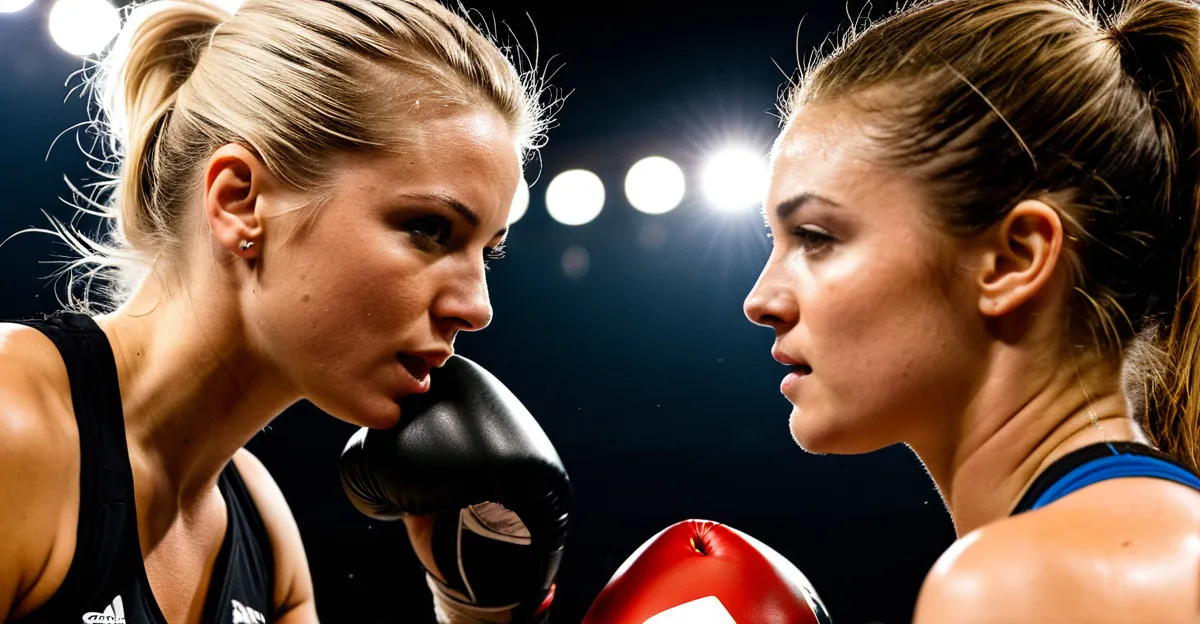Women’s historical involvement and progress in UK combat sports
Women’s involvement in UK combat sports has evolved significantly despite early barriers. Historically, societal attitudes often limited women in UK combat sports, with many perceiving these disciplines as unsuitable for females. This view delayed widespread acceptance and participation, restricting female athletes to informal or exhibition matches rather than official competitions.
The history of female athletes in combat sports reveals key milestones that marked the gradual inclusion of women. Notably, the 1980s and 1990s saw pioneering events where women were allowed to compete in boxing and mixed martial arts at increasingly recognized levels. The establishment of women’s divisions in major championships was pivotal, affirming their legitimacy and competitive value.
Also read : What Are the Unique Training Methods of UK Combat Athletes?
Institutional policy changes further accelerated this progress. Organizations adapted rules and training opportunities to support female combatants, acknowledging their role in the sport’s future. This shift in evolution of participation reflects broader cultural acceptance and a commitment to gender equity. Today, women in UK combat sports benefit from structured programs and increased visibility, highlighting how far the landscape has transformed.
Rising participation and achievements of women in UK combat sports
Female participation rates in combat sports across the UK have risen significantly over recent years. This growth reflects societal shifts encouraging women to engage in traditionally male-dominated disciplines such as boxing, MMA, judo, and wrestling. The increased visibility of female fighters in media and competitions has fueled interest among younger generations, further accelerating this trend.
Also to discover : Exploring the Legacy: How Have Historical Boxing Matches Influenced Modern Combat Sports?
Notable contemporary UK female combat athletes exemplify this surge. Fighters such as Amanda Reid and Molly McCann have gained international recognition, showcasing not only technical skill but also mental resilience. Their achievements highlight the dedication and capabilities of women in combat sports, encouraging wider acceptance and support.
These successful female athletes have contributed to the combat sports growth by elevating standards and inspiring new participants. Their international medals and championship titles underscore the UK’s rising stature in global competitive arenas. Importantly, female fighters continue to break stereotypes, advocating for equality and increased funding within the sport.
The momentum seen in female participation rates and achievements suggests that combat sports within the UK are becoming more inclusive. This inclusive growth promises a future where opportunities and recognition for women in combat sports will only expand.
Challenges and barriers impacting women in UK combat sports
Women in UK combat sports face significant barriers for women in sports that stem from long-standing gender inequality. Socio-cultural challenges often discourage female participation; combat sports are traditionally viewed as male domains, creating stereotypes that women must overcome. This bias limits opportunities and affects how female athletes are perceived by fans, sponsors, and even within sports organizations.
Institutional challenges also play a major role. Women frequently encounter pay disparity, receiving less financial support compared to their male counterparts, which hampers their ability to train and compete at elite levels. Access to resources such as coaching, training facilities, and promotional platforms is often restricted, limiting career progression and visibility.
Representation remains a concern. Female fighters receive less media coverage, affecting recognition and sponsorship deals crucial for growth. However, positive change is underway. Advocacy groups and sports bodies are launching initiatives to tackle these barriers for women in sports. Campaigns promoting gender equality and inclusion increase awareness, pushing institutions to reform policies and provide more equitable support.
Understanding these challenges is key to fostering a more inclusive environment where women can thrive in combat sports without bias or structural disadvantage.
Women’s influence on the growth and perception of UK combat sports
Women’s influence in UK combat sports has been transformative, reshaping both the public perception and industry growth. Increased media coverage has played a significant role in this shift. Television and online platforms now spotlight women fighters, showcasing their skill and dedication. This heightened visibility challenges outdated stereotypes and fosters respect for women’s achievements in the sport.
The impact on public perception extends beyond the screen. Women competitors inspire a new generation, encouraging more girls and young women to participate in grassroots programs. These programs are expanding rapidly, creating a stronger pipeline for future talent and diversifying the sport at every level. The normalization of women in combat sports helps break down gender barriers, making the arena more inclusive and welcoming.
Moreover, women’s influence drives commercial growth. Their growing presence attracts sponsors eager to support female athletes, recognizing new marketing opportunities. This sponsorship boosts funding for events, training, and athlete development, fueling the overall industry expansion. Marketing campaigns now frequently highlight women fighters, effectively reaching broader audiences and increasing fan engagement.
Together, these factors demonstrate women’s critical role in evolving and commercially developing UK combat sports, making them a dynamic and integral part of the sport’s future.
Expert insights and future trends for women in UK combat sports
Insights from coaches, athletes, and sports historians reveal a promising future for women in UK combat sports. Experts agree that female participation is steadily increasing, driven by greater visibility and social acceptance. This trend is supported by grassroots programs that nurture young talent, aiming to balance gender representation across disciplines.
Looking ahead, the future of women in combat sports in the UK involves expanding leadership roles. Women are expected to assume more positions as coaches, referees, and promoters, enhancing the sport’s inclusivity and expertise. Experts highlight that this shift will encourage more girls to pursue combat sports professionally, creating a sustainable ecosystem.
The UK industry trends indicate a positive response toward policy changes promoting equality and safety standards tailored for women. Such frameworks empower female athletes to train and compete without compromised conditions. Moreover, experts foresee technological innovations aiding performance analysis and injury prevention, enhancing longevity for female combatants.
In summary, the evolving landscape presents multiple opportunities for women to thrive. Continued investment in women-led initiatives and education will be key. As experts emphasize, supporting these trends will not only elevate individual careers but also enrich the entire UK combat sports scene.

